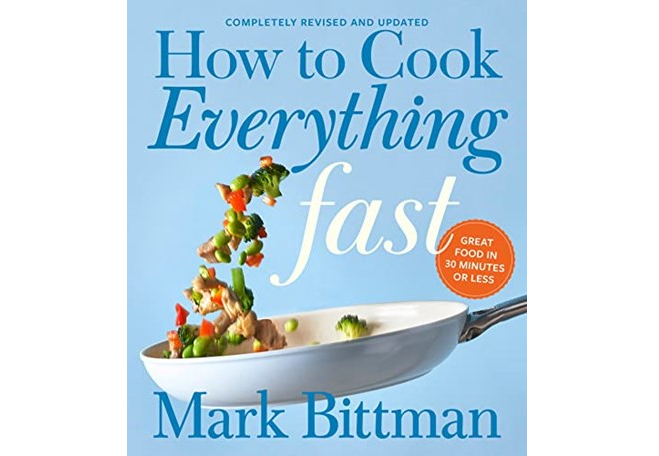Is mise en place really necessary?
November 30, 2022 by DarcieRead the foreward to any cookbook and the author will probably mention mise en place. It is touted as the key to making sure your food will turn out well, and there are definitely benefits to the practice. But, as Mark Bittman points out in a recent episode of his podcast focused on the new edition of How to Cook Everything Fast, it’s not the end-all-be-all to great cooking, and it can even make meal prep more difficult than it has to be. (Fast forward to 1:32 to avoid a longwinded ad.)

Bittman says that the “restaurant model of cooking that became so popular, of doing mise en place, sort of assumes that you have an assistant or two to do the mise en place.” However, as he remarks, home cooks do not have assistants to prep everything (or, and equally important to me, to clean up afterward). Bittman champions a different method that he and long-time collaborator Kerri Conan call “real-time cooking” where people make use of the “down time” that naturally occurs with most recipes.
Conan and Bittman posit that if you get into the natural flow of cooking, you can save substantial time, chopping an onion while the oil preheats, for example, shaving a quarter or more of the time needed to make the dish. It’s a more intuitive way to prepare food, but they do note that if you aren’t familiar or comfortable with the process, you may want to continue with mise en place in the beginning, reducing it gradually as you become more confident in the kitchen. Bittman notes that the recipes in the new edition of How to Cook Everything Fast, all of the recipes should be take 30 minutes or less, and the book is “much more on target,” compact, and efficient than the original version.
Having never mastered mise en place, I do gravitate toward this “go with the flow” style of cooking, although I occasionally forget an ingredient because I don’t have everything laid out and prepped. To me, the time savings (and having fewer dishes to do) makes up for any errors that happen, although this style also serves as justification for my seeming inability to gather and measure all of the ingredients in advance.
Categories
- All Posts (6940)
- Antipasto (2135)
- Author Articles (247)
- Book News (935)
- Cookbook Giveaways (983)
- Cookbook Lovers (257)
- Cooking Tips (109)
- Culinary News (299)
- Food Biz People (552)
- Food Online (791)
- Holidays & Celebrations (272)
- New Cookbooks (149)
- Recipes (1500)
- Shelf Life With Susie (231)
- What's New on EYB (133)
Archives
Latest Comments
- Atroyer7 on Danube Cookbook Review and Giveaway
- demomcook on What foods do you look forward to the most for each season?
- demomcook on Danube Cookbook Review and Giveaway
- Darcie on How cookbooks can help build resilience
- mholson3 on Danube Cookbook Review and Giveaway
- Rinshin on How cookbooks can help build resilience
- sarahawker on Danube Cookbook Review and Giveaway
- Sand9 on Danube Cookbook Review and Giveaway
- hankintoby29 on Heritage Cookies of the Mediterranean World – Cookbook Giveaway
- WBB613 on Feasts of Good Fortune Cookbook Giveaway